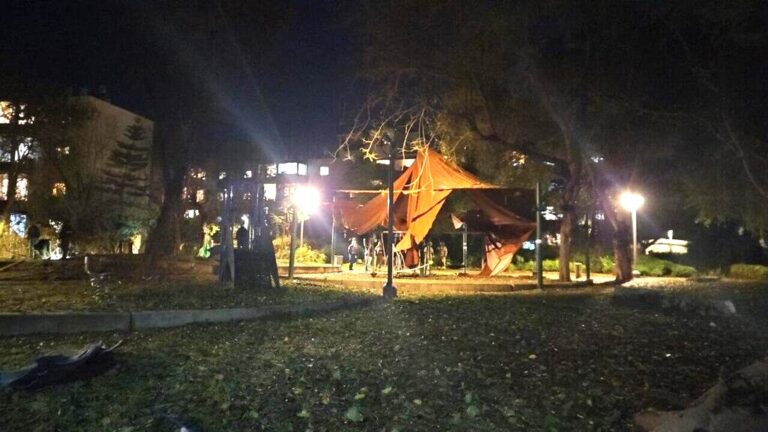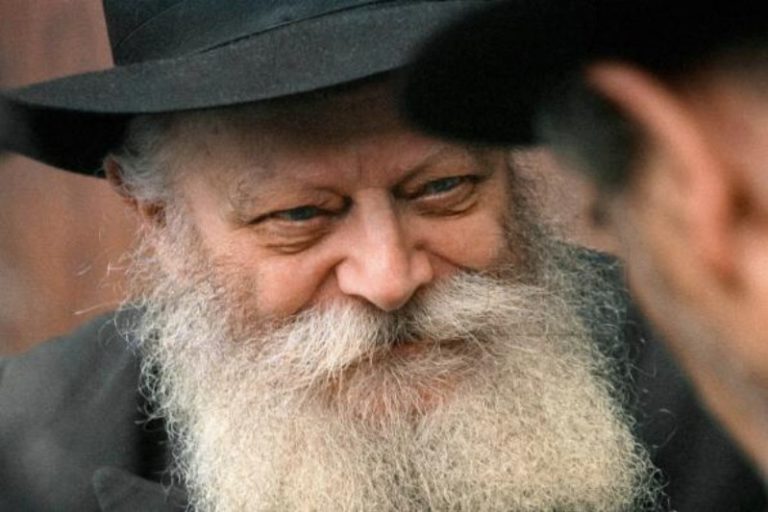וילך איש מבית לחם יהודה – רות 1:1
Why does the Megillah omit Elimelech’s name, only to reveal it to us in the following verse? The Shelah HaKadosh explains based on the Gemora in Kiddushin (40a) which teaches that when a Jew has a thought about doing a sin, Hashem doesn’t consider it as if he has already done the sin until he actually does it. For this reason, the Torah (Bamidbar 25:6) doesn’t mention Zimri’s name at the end of Parshas Balak when he went to sin with Cozbi, stating only והנה איש מבני ישראל בא ויקרב אל אחיו את המדינית. Only after he actually sinned with her does the Torah mention his name when recording that Pinchas killed him. Similarly, Elimelech’s name isn’t mentioned when he initially began his travels, as even though he left his home, he hadn’t yet arrived in Moab and settled there. Only in the next verse when he completely left Israel and settled in Moab is his name recorded.
Alternatively, Rabbeinu Bechaye (Shemos 30:12) explains that when a person is part of the tzibbur, he isn’t judged so strictly and individually, and may often survive and prosper in their collective merits. Once somebody is separated from the community, he is examined and judged much more closely. This is why it was forbidden to directly count the Jewish people, as this would divide them into individuals, but only indirectly through the Machatzis HaShekel.
For this reason, the Zohar explains that when Elisha asked the Shunamis what she would like him to pray on her behalf, she responded (Melochim 2 4) בתוך עמי אנכי יושבת – I dwell amongst my people and I am afraid to be singled out for special treatment, lest I be judged harshly. The Zohar adds that this incident occurred on Rosh Hashana, when the Shunamis was especially concerned about being singled out and just wanted to survive the judgment together with the community.
Similarly, the famine here occurred at a time of Divine anger. Had Elimelech remained in his town, he would have survived the famine together with them, but once he separated himself to travel to Moab, he was judged more closely as an individual. This is alluded to by the fact that the Megillah initially describes him as an anonymous Jew, but once he left Israel, his name is identified and singled out, and he died shortly thereafter.
The Malbim additionally suggests that Elimelech was even worse than an average person who separates himself from the tzibbur. Elimelech wanted to leave Israel as a regular private citizen who was permitted to leave in a time of famine, so the verse doesn’t mention his name. However, Elimelech was a great leader and sustainer of the Jewish community – the Zohar explains that the term איש is used for great and important people – which quickly noticed and felt his absence. The secret departure of the person that they were counting on to support them caused them great despair, and as a result, they were judged and punished. The Yalkut says the reason he was killed was because הפיל לבן של ישראל – he caused the hearts of the Jews to fall.
וילך איש מבית לחם יהודה – 1:1
The Baal HaTurim notes that the expression וילך איש appears two times in Tanach, once here regarding Elimelech leaving Israel, and once (Shemos 2:1) in conjunction with the birth of Moshe – וילך איש מבית לוי. There are a number of fascinating parallels between the lives of Moshe and Dovid.
Moshe was the גואל ראשון – first redeemer – and Dovid is associated with the גואל אחרון – final redeemer. Moshe wrote the five books of the Torah, and Dovid’s Sefer Tehillim is divided into five books. The fathers of Moshe and Dovid – Amram and Yishai, respectively – are two of the four people whom the Gemora (Shabbos 55b) teaches died without ever sinning. Moshe’s father-in-law Yisro was the first convert after the giving of the Torah. Dovid was descended from Rus, who also symbolizes conversion. In fact, the names Rus and Yisro contain the same letters, as רות has a numerical value of 606, the number of mitzvos that a convert accepts in addition to the seven in which a non-Jew is obligated, except that Yisro has an additional י because he joined the Jewish people at the time of the Aseres HaDibros. The Medrash teaches that both Moshe and Dovid were born already circumcised.
Dovid was born and died on Shavuos, the day on which Moshe’s basket was placed into the Nile River and on which he later received the Torah. Rav Chaim Friedlander explains that this is because the purpose of a King isn’t just to lead the people and provide for their needs, but rather to make the nation accept Hashem’s Kingship and to make sure that they follow in the ways of the Torah. In essence, Dovid and his descendants executed the very purpose for which Hashem gave the Torah to Moshe, and for this purpose he was born on the day that it was given.
ותשק ערפה לחמותה ורות דבקה בה- 1:14
The Gemora in Sotah (42b) teaches that Orpah’s son was none other than Goliath, who was killed by Rus’s descendant Dovid. The wording of the Gemora is יבואו בני הנשוקה ויפלו ביד בני הדבוקה – the sons of the one who kissed will come and fall into the hands of the one who clung. Obviously there must be a deeper message here than merely pointing out that the descendant of Orpah, who kissed Naomi, fell at the hands of the descendant of Rus, who clung to her.
The Mishbetzos Zahav notes that the Medrash refers to Orpah’s kiss as a נשיקה של פרישות – kiss of separation. On the one hand, such a kiss represents tremendous respect for the object of the kiss. On the other hand, it is also an acknowledgement that the person giving the kiss feels that it is not for him. Even though he recognizes the value and truth of the object, he nevertheless rejects it and walks away from it. The concept of clinging is the diametric opposite. It represents an acknowledgement of all of the struggles and difficulties that lie ahead, and nevertheless shows a willingness to accept and confront them. Because Rus recognized the value and ultimate truth to Naomi and Judaism, she expressed that she had no choice but to cling to her, because separating from her would be the equivalent of spiritual death.
In light of this, he beautifully explains that Orpah specifically abandoned Naomi because of a concern about her future and her ability to marry and raise a family if she returned to Israel. Rus, on the other hand, was equally aware of this concern and had no reason to think that she would marry, but nevertheless was determined to follow the truth without any calculations. Ironically, the Gemora teaches that it was the descendant of Orpah, who lived life focused on her future, who was killed by the descendant of Rus, who followed the truth without worrying about her future, but ultimately was the only one of the two who merited a future.
כי אל אשר תלכי אלך ובאשר תליני אלין עמך עמי ואלקיך אלקי באשר תמותי אמות ושם אקבר – 1:16
From what Rus said, Rashi derives the mitzvos that Naomi must have given over to her – techum Shabbos, yichud, Taryag mitzvos, idolatry, four types of the death penalty that are given by Sanhedrin, and the laws governing the burial of those killed for capital sins. Why did Naomi give them in this order? She went from the most lenient to the most stringent – beginning with techum which is Rabbinical, to yichud which is Biblical, to the 613 commandments which are even more stringent, to idolatry, to the death penalty, to separate burial even after death for these sins.
The Gemora in Yevamos (47a) derives from here that a convert is told קלות וחמורות – light mitzvos and stringent ones. This is difficult to understand. If he accepts the severe fundamentals such as idolatry and Shabbos, wouldn’t he automatically accept the less stringent mitzvos? Why do we need to specifically inform him of these areas as well? The Meiri explains the need for קלות because non-Jews can’t comprehend that Hashem could have laws governing and care about “trivial” things like the order in which we get dressed and the way in which we go to the bathroom.
Judaism believes that there is no place void of Hashem and spirituality, and we sanctify even seemingly mundane physical activities. A non-Jew holds of a separation, that our earthly human needs have no connection to holiness and are in fact intrinsically irreconcilable with it. Their “holy” people take vows of chastity and poverty. Therefore, the Gemora in Menachos (73b) teaches that if a non-Jew brings a Korban, it is completely burned on the Altar, because he can’t comprehend that eating could have anything to do with holiness and sanctity. We therefore emphasize this point to the prospective convert to make sure that he accepts this fundamental concept in Judaism.
Similarly, the Medrash writes that Naomi informed Rus that it is forbidden for a Jew to live in a house that lacks a mezuzah, to which she responded that she would only sleep where Naomi would sleep. What is so difficult about the mitzvah of mezuzah, and why would Naomi specifically need to single it out to mention it to Rus at this time? The Mishbetzos Zahav explains that Naomi was specifically emphasizing the uniquely Jewish concept of קדושת הבית – the sanctity of the house. We understand that we live our entire lives under Hashem’s watchful protection, which also obligates us to preserve the sanctity of our homes.
למי הנערה הזאת – 2:5
Rashi quotes the Gemora in Shabbos (113b), which asks, “Was it the way of Boaz to constantly inquire about women?” The Gemora answers that Boaz saw in Rus wisdom and modesty. Rashi explains that the modesty was that when she collected standing ears she did so while standing up, but for stalks on the ground, she sat down to pick them up instead of bending over.
At this point in time, there was tremendous confusion regarding the legal permissibility of marrying a female Moabite such as Rus. Rav Dovid Cohen suggests that the tznius (modesty) demonstrated by Rus helped convince Boaz that she was permitted. The Torah provides the reason that one may not marry a Moabite or Ammonite: על דבר אשר לא קדמו אתכם בלחם ובמים בדרך בצאתכם ממצרים – because they didn’t come out to greet you with bread and water when you were leaving Egypt. In arguing for the permissibility of female Moabites, the Gemora in Yevamos (77b) suggests that this was only a complaint against the males, who were expected to come out to greet us, but the females weren’t expected to come out because it wouldn’t be tznius. The Gemora questions that although it wouldn’t be tznius to come out to greet the male Jews, they still should have come out to greet the females. The Gemora answers that כל כבודה בת מלך פנימה – all of the glory of the King’s daughter is inside – so it’s not a deficiency on their part that they didn’t do so.
It is very difficult to understand how the Gemora can justify and defend the conduct of the female Moabites based on their tznius when they were the very ones who came to cause us to sin in the area of immoral and forbidden relationships at the end of Parshas Balak. They were the ones who refused to accept the Torah when they heard that it says לא תנאף – you shall not commit adultery. Their very existence was only brought about through the actions of Lot’s daughters with him. How could they defend their actions based on concerns of tznius? Some answer that although they weren’t tznius and should have come out to greet the Jewish women, it was the Jewish women who were tznius and were inside of their tents, so there was nobody for them to come greet.
Others explain that since the Torah’s proper conduct is for women to be tznius, we cannot punish the female Moabites even if they don’t possess their trait and this wasn’t their true motivation. Still, Boaz felt that it was necessary to demonstrate that this trait does run in their national gene pool, and when he saw the tznius of Rus, this helped confirm for him her permissibility.
However, although it is praiseworthy that Rus was so tznius while collecting, this doesn’t answer the Gemora’s question. Weren’t other Jewish women equally tznius? Did Boaz inquire about every Bais Yaakov graduate that he encountered? Rav Moshe Dovid Valle explains that poverty can destroy all semblance of a person’s humanity, as he becomes so focused and fixated on his hunger and need for survival that he forgets all other considerations. As we mentioned earlier, Rus conducted herself even at this difficult time with bitachon and dignity, and her tznius remained intact and attracted Boaz’s attention. Boaz was astonished by Rus’s ability to preserve her equanimity, in contrast to the other poor collectors, who were lenient when it came to questions of stealing grain to which they weren’t entitled, and of tznius.
Rav Shlomo Brevda adds that this was even more amazing when considering that Rus was descended from Lot, who was lacking specifically in these two areas. He was admonished by Avrohom for allowing his shepherds to graze in fields that didn’t belong to him, and he bore children through his own daughters. Boaz couldn’t help but be overwhelmed by Rus’s strength and asked, “Who is this woman, and from where did she get such tremendous determination?”
Shavuos Points to Ponder (and sources which discuss them):
1)Why does the Torah command us (Vayikra 23:16) to count 50 days of the Omer when the mitzvah is only to count 49? (Rosh Pesachim 10:40, Ibn Ezra)
2)Why does Shavuos lack any unique mitzvos for individuals to perform as all other Yomim Tovim have, and why does it last only one day in contrast to Pesach and Sukkos, which are much longer? (Kovetz Sichos of Rav Nosson Wachtfogel Vol. 2 Parshas Acharei Mos)
3)Of all of the 24 books of Tanach, only two are named for women – Rus and Esther. What unique merit did they have which caused books to be named in their honor?
4)When Rosh Hashana or Sukkos fall on Shabbos, the shofar may not be blown and the four species may not be taken, as the Sages decreed that they shouldn’t be taken out of a fear that they may be inadvertently carried to a Rabbi to learn their laws. Why wasn’t a similar decree made forbidding the reading of Megillas Koheles and Rus when their respective times fall on Shabbos, as they do this year? (Rav Chaim Kanievsky quoted in M’rafsin Igri)
5)Why do we refer to Shavuos as זמן מתן תורתנו – the time of the giving of the Torah – instead of זמן קבלת תורתנו– the time of the receiving of the Torah? (Chiddushei HaRim)
6)When the Jewish people traveled to Mount Sinai (Shemos 19:1), did they know that they were going there to receive the Torah? (Seforno, Ayeles HaShachar 19:2)
7)Rashi writes (19:11) that none of the Jews were blind at the time of the giving of the Torah because all of them were miraculously cured from any illness from which they suffered, although all of the sicknesses returned after the sin of the golden calf. Did they also return to the members of the tribe of Levi and to the women, none of whom took part in the sin? (Ayeles HaShachar)
8)The Torah teaches (19:13) that after the sounding of the shofar to indicate the departure of the Shechinah, it was permitted for the Jewish people to touch or ascend Mount Sinai. Why does no holiness remain on Mount Sinai as it does on the Temple Mount, which became permanently holy and which has laws that govern conduct there for eternity? (Ayeles HaShachar)
9)The Gemora in Shabbos (88a) relates that when the Jewish people answered in unison (24:7) נעשה ונשמע – we will do and we will listen – proclaiming their willingness to observe the commandments even before hearing them, 600,000 angels immediately descended to present each Jew with two crowns, one for נעשה and one for נשמע. Although each person was able to commit himself to performing the mitzvos, how were they able to respond on behalf of others, saying “we will do and we will listen” instead of “I will do and I will listen?” (Chiddushei HaRim)
10)If the mitzvah of Torah study (Devorim 6:7) is so important that it is equal to all of the other mitzvos (Peah 1:1), why wasn’t it included in the 10 Commandments?
11)The Gemora in Shabbos (88b) teaches that each time that the Jewish people heard Hashem say one of the 10 Commandments, their souls left them and He had to miraculously revive them in order to continue. After the completion of the 10 Commandments, were they still considered legally married to their spouses, or did they need to remarry one another because their temporary deaths had rendered them all legally single and unmarried? (Chasam Sofer 4:25, Birkei Yosef Even HaEzer 17, Pesach Einayim Megillah 7b, Kovetz Shiurim 2:28, Chavatzeles HaSharon)
12)Rashi writes (20:15) that at Mount Sinai, the Jewish people were miraculously able to see what they were hearing. As Hashem doesn’t perform miracles for no reason, what was His purpose in doing so? (Nesivos Rabboseinu, Taam V’Daas)










